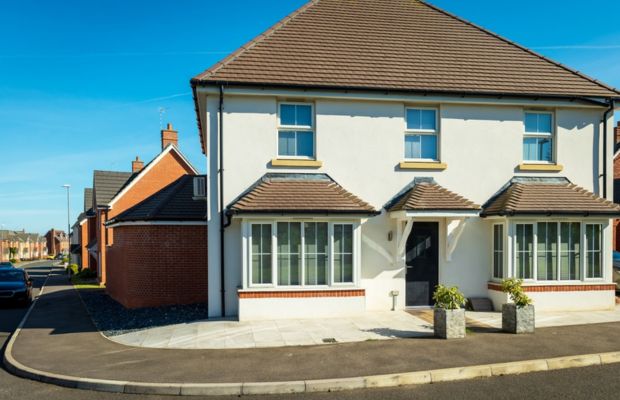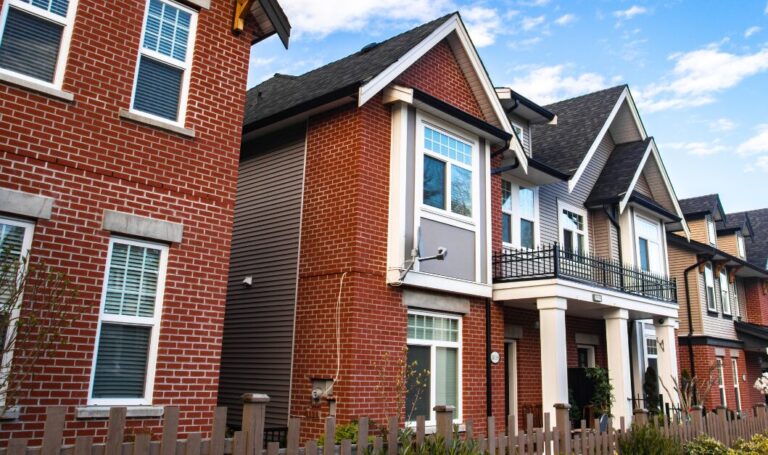Repossessed properties can present a unique opportunity for those looking to get onto the property ladder or find a bargain. However, buying a repossessed house isn’t the same as purchasing a traditional home, and it’s important to understand the process, the pros and cons, and the financing options available.
Here’s what you should know before buying a repossessed property.
Related: Understanding the costs of buying a home
What is a repossessed property?
A repossessed property is one that has been taken back by the lender or financial institution because the previous owner failed to keep up with mortgage repayments. The process of repossession is typically the result of a foreclosure, where the lender takes control of the home to recover the loan amount. Once repossessed, the property is usually sold at auction or through estate agents as a bank-owned property.
Foreclosed homes for sale: where and how to find listings
Finding repossessed houses for sale is not always straightforward, but there are several places where you can look for foreclosure listings:
Online auction sites: Many repossessed properties are sold through online auction platforms. These sites often list a range of bank-owned properties for sale, including those in various stages of repossession.
Estate agents: Some estate agents specialise in repossessed homes and may have access to listings that aren’t available on mainstream property websites.
Bank websites: Banks and financial institutions sometimes list their repossessed properties directly on their websites, giving buyers an opportunity to see available homes before they hit the open market.
Public auctions: Repossessed homes are often sold at public auctions. You can check local auction houses or government websites for upcoming sales of foreclosed homes.
Related: Everything you need to know about buying a property at auction
Pros and cons of buying a repossessed house
Like any property purchase, buying a repossessed house comes with both advantages and potential risks. Here’s a quick look at the pros and cons:
Benefits of buying a repossessed home
Opportunity for a bargain: Repossessed homes are often priced lower than market value, giving buyers the chance to secure a good deal.
Faster purchase process: The purchase of repossessed homes can sometimes be quicker than buying from private sellers, allowing for a faster move-in.
Potential for value growth: Many repossessed homes may need repairs, offering buyers the chance to renovate and add value, personalising the space to their needs.
Considerations when buying a repossessed home
Unknown issues: Repossessed properties are typically sold “as is,” meaning there could be hidden problems that may not be immediately apparent.
Auction competition: Repossessed homes are often sold at auction, which can lead to bidding wars, potentially raising the price above what you’d expect to pay.
Legal complexities: The sale process may involve legal challenges, particularly if the previous owner is still residing in the home or if there are unresolved disputes.
Financing options for repossessed homes
While it’s possible to get a mortgage on a repossessed house, there are certain factors to consider. Here are some key points to keep in mind:
Mortgage lenders: Not all lenders will offer mortgages on repossessed homes, especially if the property is in poor condition. It’s important to check with your lender to see if they offer financing for bank-owned properties.
Specialist lenders: Some lenders specialise in repossessed homes or properties in need of renovation. These lenders may be more flexible in their requirements and offer higher loan-to-value ratios.
Renovation loans: If you’re buying a repossessed house that needs significant repairs, you may want to look into renovation loans, which allow you to borrow money for both the purchase and the improvements needed to bring the property up to standard.
Related: House renovation costs: what to expect
Is it good to buy a foreclosed home?
Buying a foreclosed home can be a great opportunity for the right buyer, but it’s not without risks. If you’re looking for a home that needs some work and are prepared to deal with the potential complications, a repossessed property could offer substantial savings.
However, it’s crucial to do thorough research, get a full survey done, and be prepared for the potential costs involved in bringing the home up to standard.
Related: Buying a house with subsidence:everything you need to know
Can you get a mortgage on a repossessed house?
It’s possible to get a mortgage on a repossessed house, but the process can sometimes be more complicated than buying a regular property. You’ll need to ensure the property is in a mortgageable condition and meet the lender’s requirements. In some cases, a larger deposit may be required, or the lender may offer a different type of loan tailored for repossessed homes.
Buying a repossessed property can be an attractive option if you’re willing to navigate the potential challenges and risks. Whether you’re hoping for a bargain or find a fixer-upper, repossessed houses can offer great opportunities.
Just remember to do your due diligence, seek expert advice, and be prepared for the complexities of the buying process. If you’re considering buying a repossessed property, contact your local Whitegates branch.




